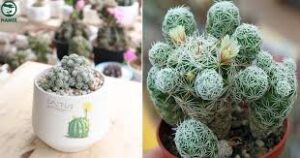
Feng Shui, an ancient Chinese practice centered around the idea of balancing energies, has long been associated with enhancing various aspects of life, from wealth to relationships and personal well-being. As we age, maintaining good health becomes even more crucial, and the environment plays a significant role in how we feel and function daily. For seniors, creating a living space that promotes physical, mental, and emotional well-being can be the key to maintaining a healthy, fulfilling life.
In this article, we will explore how Feng Shui principles can be applied to help older adults preserve and enhance their health. By making simple adjustments to the living space and incorporating specific Feng Shui techniques, seniors can foster an environment that supports vitality, energy flow, and overall wellness.
1. Understanding Feng Shui and Its Connection to Health
Feng Shui is based on the idea that everything in our environment is imbued with energy, or Chi, and that the quality and flow of this energy directly affect our lives. In the practice of Feng Shui, it is believed that when Chi flows freely and harmoniously, individuals experience balance and well-being, while stagnant or negative energy can cause discomfort, stress, or even health issues.
For seniors, maintaining a balance of Chi in their living space is crucial for preserving vitality, encouraging physical and emotional healing, and minimizing the effects of aging. Feng Shui encourages the creation of environments that are peaceful, nurturing, and supportive, helping seniors stay active, healthy, and emotionally stable as they age.
2. The Role of Feng Shui in Health for Seniors
Seniors face unique health challenges as they age, including reduced mobility, chronic conditions, and emotional stress. Feng Shui can help address these issues by creating an environment that:
- Supports Physical Health: A well-organized, balanced space can encourage better physical health by promoting movement, relaxation, and better circulation of energy.
- Boosts Mental and Emotional Well-being: A calm, serene environment can reduce stress, anxiety, and depression, which are common in older adults, particularly those who live alone or experience feelings of isolation.
- Promotes Safety and Comfort: Feng Shui can help ensure that a home is physically safe, reducing the risk of accidents and encouraging comfort and ease in daily activities.
3. Key Feng Shui Principles for Seniors’ Health
Feng Shui offers several guiding principles that can be used to create a healthy, nurturing environment for seniors. Below are some of the most important Feng Shui elements to consider when designing a space that promotes well-being:
A. Clear and Open Spaces
Clutter is one of the biggest obstacles to good Feng Shui, as it blocks the flow of Chi and can lead to feelings of stress, confusion, and physical discomfort. In the case of seniors, clutter can also create physical hazards, such as tripping over items or struggling to navigate narrow pathways.
To promote health and vitality, seniors should keep their living spaces tidy and free from unnecessary items. Regular decluttering can help improve mental clarity and reduce stress while ensuring a safer living environment. The living room, bedroom, and hallway are key areas to focus on, as these spaces are used most frequently and need to allow for easy movement and flow.
B. Proper Lighting
Good lighting is essential for both physical health and emotional well-being. Adequate lighting helps reduce the risk of accidents and ensures that seniors can see clearly, making it easier to move around the house and engage in daily activities. Poor lighting can lead to eye strain and a sense of fatigue, which can negatively affect a senior’s health.
In Feng Shui, natural light is highly valued, as it is believed to energize and revitalize the space. Seniors should try to incorporate as much natural light as possible into their home. For rooms that lack natural light, consider using soft, warm artificial lighting to create a cozy and comfortable atmosphere.
Incorporating light into the home’s energy flow can also be done by using light-colored curtains, mirrors, and reflective surfaces, which help distribute light evenly and prevent dark, heavy areas from forming.
C. Bedroom Feng Shui: Vital for Restful Sleep
Sleep is crucial for maintaining good health, and it becomes even more important as we age. Seniors often experience sleep disturbances due to health conditions, medication side effects, or stress. A Feng Shui bedroom designed for relaxation and restful sleep can significantly improve sleep quality and overall health.
Several Feng Shui tips can help optimize the bedroom for better sleep:
- Bed Placement: The bed should be placed in a position where the headboard is against a solid wall, and the foot of the bed should not face the door directly. This is known as the “command position,” which provides a sense of security and control.
- Comfort and Support: Ensure the mattress is comfortable and supportive, promoting a restful night’s sleep. Avoid placing electronics, such as televisions, phones, or computers, in the bedroom, as they can disrupt sleep and create a restless energy.
- Soft and Calming Colors: Use calming, muted colors like light blues, greens, or earth tones in the bedroom. These colors are known to reduce stress and encourage relaxation.
- Minimal Distractions: Keep the bedroom free of clutter or objects that may cause stress. A serene environment will help seniors relax and recharge during the night.
D. Incorporating Natural Elements
Feng Shui emphasizes the importance of connecting with nature to improve physical and emotional well-being. Natural elements such as plants, water features, and wooden furniture can create a balanced and harmonious environment, which is especially important for seniors as they may be more sensitive to their surroundings.
- Plants: Indoor plants bring positive energy into the home and can improve air quality. Choose easy-to-care-for plants such as peace lilies, snake plants, or bamboo. These plants also have a calming effect, helping to reduce anxiety and stress.
- Water Elements: A small water fountain or aquarium can be a calming addition to the home, promoting tranquility and emotional balance. However, avoid using water features in the bedroom, as they may disrupt sleep.
- Wood and Earth Materials: Wood and earth tones are nurturing and grounding, providing a sense of stability and security. Wooden furniture, natural fiber rugs, and stone decorations can enhance the energy of the space, promoting health and well-being.
E. Enhancing the Health Area in the Bagua Map
In Feng Shui, the Bagua map is a tool used to analyze different areas of a space based on the life areas they represent, such as wealth, career, and health. For seniors, the health area of the home (located in the center of the Bagua map) is especially important for maintaining physical well-being.
To enhance the health area, focus on the following:
- Clean and Nourishing Energy: Keep this area free of clutter, and incorporate elements that support vitality, such as plants, soft lighting, and calming colors.
- Symmetry and Balance: Balanced, symmetrical layouts promote harmony and support the body’s natural rhythms. Avoid sharp corners or jagged edges in the health area, as these can create negative energy.
- Healing Symbols: Feng Shui healing symbols, such as crystals, gemstones, or images of nature, can be placed in the health area to enhance vitality and wellness.
4. Feng Shui and Emotional Well-being
In addition to physical health, emotional and mental well-being are essential aspects of overall health, particularly for seniors who may be dealing with issues like loneliness, depression, or anxiety. Feng Shui encourages the creation of spaces that foster a sense of calm, comfort, and positivity. Here are some tips for improving emotional well-being through Feng Shui:
A. Social Areas for Connection
It’s essential for seniors to have spaces where they can connect with others, whether it’s with family members, friends, or neighbors. Socializing can help prevent feelings of isolation and depression, and Feng Shui can help create inviting, comfortable areas for these interactions.
- Living Room Setup: Arrange furniture in a way that promotes conversation and connection. Avoid having furniture arranged against walls, which can create a sense of isolation. Instead, group seating areas so that they encourage interaction.
B. Personalization and Inspiration
A senior’s home should be a place that reflects their personality, interests, and memories. Personal items like photographs, artwork, or sentimental objects can help create a sense of belonging and positivity. Displaying objects that inspire joy and creativity can also help boost emotional well-being.
C. Calming Colors and Decor
The colors used in a senior’s home should promote relaxation and peace. Light, neutral tones like soft greens, blues, and yellows are ideal for creating a soothing environment. These colors can help reduce stress and enhance overall emotional health.
5. Conclusion: Creating a Harmonious Home for Seniors
Feng Shui offers valuable insights and techniques for creating a living environment that supports the health and well-being of seniors. By following the principles of Feng Shui, seniors can maintain a harmonious flow of energy that promotes physical health, mental clarity, and emotional stability. From decluttering and optimizing the bedroom for restful sleep to incorporating natural elements and healing symbols, Feng Shui can be a powerful tool in helping seniors age gracefully and healthily.
By thoughtfully designing their living space according to Feng Shui principles, seniors can foster a nurturing environment that encourages longevity, vitality, and happiness, ensuring that they live their golden years in the most supportive and balanced environment possible.










